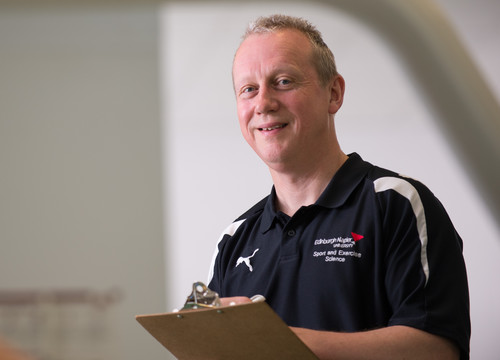Dr Tony Westbury is a lecturer in Sports Psychology and teaches on the MSc Sport Performance Enhancement degree. Here he gives us an insight into the mental challenges that Mark is facing as he attempts to cycle around the world in 80 days.
Many people enjoy a bike ride. An hour or two in the natural environment lifts the mood and creates space to think. Better still if it is shared with family or friends; fostering a sense of connectedness which enhances wellbeing and intrinsic pleasure.
Contrast this with the challenge Mark Beaumont has taken on – riding alone, his mission to cover 18,000 miles in 80 days. The maths is simple; averaging 240 miles per day, even riding conservatively this means 16 hours in the saddle per day, notwithstanding changes of terrain and headwinds. As I write this Mark is approaching the Canada - US Border – battling headwinds, 13,000 miles and 61 days into a challenge which he seems on course to achieve.
Many focus exclusively on the physical condition and resilience he has shown to date. Undoubtedly this is a remarkable performance – but put Mark into an Olympic Games or Tour De France and he would be unlikely to reach the podium. Physically he is remarkable but others are more so. Where Mark is truly superhuman is in his ability to mentally cope with the challenges he sets himself. His mental toughness is grounded in his physical conditioning. He is astonishingly comfortable with discomfort. He thrives where others would give in. If these qualities are not physical, what are they? And why do so few others possess them, even at the elite level of sport?
Sport psychologists have identified a few key characteristics of ultradistance performers. They are simply described but rare and extremely difficult to apply day in and day out.
1. Sense of purpose
The first characteristic is a simple but overpowering connection with a sense of purpose, his very personal ‘because’. Psychologists have long researched motivation, it is highly complex and a number of competing lines of theory exist. Mark’s motivation cuts through all of that, there is a sources of mental energy which drives him on: Single minded and with a clear vision of success: With a strong sense of purpose all pain is bearable.
2. Emotion-regulation
Linked to this is the second characteristic, the ability to control emotion. In ultra-endurance events mood is often intensified – good moments are experienced as euphoric highs and bad ones as dark lows. Tiny issues and concerns can be magnified and amplified – a small blister or aching neck can lead to a potentially catastrophic loss of perspective and potential threat to the completion of the challenge. Emotional self regulation can only come from the performer: A support team member suggesting that a performer ‘calms down’ is likely to be the catalyst for an even more serious loss of composure.
3. Inner dialogue and self-talk
A third characteristic, linked to both motivation and emotional control is the management of self-talk. Self-talk is the inner dialogue the athlete engages in on the long hours on the road. It is very easy to become preoccupied by how much further you have to go and how bad you feel. For most people, this type of narrative would be overwhelming. A reason to weep, and stop. Mark has a record of achievement – he knows that going too far into the future in his thinking doesn’t help. By breaking a long ride into very short sections – a few minutes or a few miles – the hill is climbed and the headwind turns into a tailwind.
Finally, I suspect that on day 81 – when Mark is back in the UK putting his feet up, soaking up the achievement of becoming the first human to ride his bike around the world in 80 days – he will celebrate – with a short bike ride. Why? because Mark loves riding his bike – play can sometimes turn into work – especially for professional performers – Mark seems to derive a simple, intrinsic pleasure from just riding his bike…..play stays as play – that has helped him, perhaps more than he realises.
Tony has a new book being released titled '75 questions with a sports psychologist'. Check it out now!